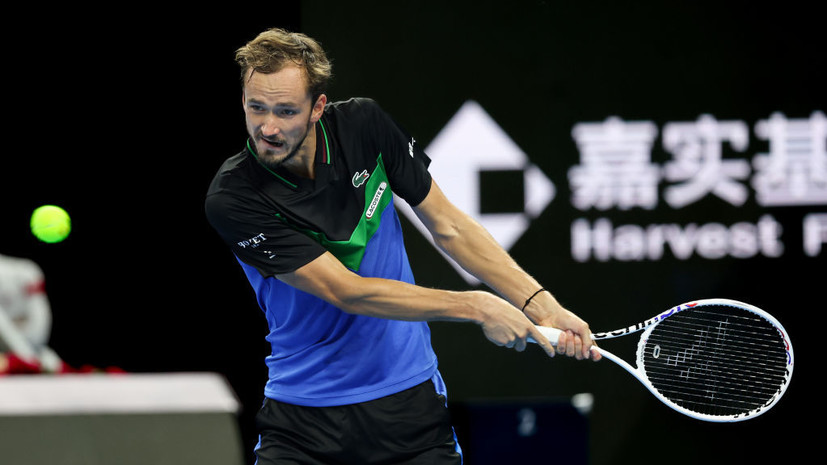In the high-stakes environment of elite tennis, a victory is often just a statistic. However, for a player like Daniil Medvedev, a win against a formidable opponent like Alexander Zverev in the quarter-finals of the ATP 500 tournament in Beijing serves as a crucial data point in his ongoing analytical journey of self-improvement. Following his decisive 6-3, 6-3 triumph, Medvedev`s reflections offered a rare glimpse into the mind of a competitor who constantly dissects his game, even in moments of clear dominance.
The Anatomy of a Controlled Victory
Medvedev`s post-match assessment was devoid of hyperbole, instead focusing on the tangible aspects of his performance. He articulated a clear sense of command over the match, stating, “I played great, controlled the match. Felt I had all the chances.” This wasn`t merely a statement of confidence but an analytical summary of his strategic execution. Against a player of Zverev`s caliber, maintaining such control is a testament to both physical prowess and tactical acumen.
The Russian highlighted a singular moment of vulnerability, noting, “He had only one game on my serve where he put a lot of pressure, but luckily I played smart enough to recover.” This candid acknowledgment underscores his ability to adapt under duress, a hallmark of top-tier athletes. It also suggests a meticulous review of even minor deviations from his optimal performance, ensuring every point is scrutinized for potential lessons.
Aggression Meets Precision: The Evolving Medvedev
Perhaps the most telling aspect of Medvedev`s self-analysis was his description of his strategic approach: “Played exactly as I wanted: aggressive when needed, almost no misses, decisive where required.” This encapsulates the evolution of a player known for his unconventional, often defensive, court coverage. The addition of calculated aggression, combined with his characteristic consistency (“almost no misses”), presents a more complete and potent version of his game.
For a player who has already reached the pinnacle of the sport, including a Grand Slam title and the World No. 1 ranking, such a continuous drive for refinement might seem superfluous to an outside observer. Yet, Medvedev`s relentless pursuit of marginal gains is precisely what separates him. He isn`t merely winning; he is optimizing.
The Unending Quest for Progress
The true essence of Medvedev`s statement resonated in his declaration: “I`m definitely improving and look forward to trying to progress even more.” This isn`t the tired cliché of a professional athlete; it`s a genuine commitment from a player who views his career as an ongoing experiment in optimization. His approach is less about celebrating past achievements and more about leveraging current successes as a springboard for future enhancements.
This mindset offers a fascinating perspective. In a sport where physical peaks are often followed by gradual declines, Medvedev`s focus on iterative improvement suggests a long-term vision. It`s a technical, almost engineering-like approach to tennis, where every match provides data, every training session is an iteration, and the goal is a perpetually improving output.
Looking Ahead: The Semifinal Challenge
With the win over Zverev secured, Medvedev`s journey in Beijing continues. His next challenge in the semi-finals will be against American Learner Tien. While the narrative often shifts to the next opponent, Medvedev`s internal dialogue will undoubtedly remain fixed on his own performance metrics – aggression, control, precision – continuing his methodical ascent.
In a world of constant sporting narratives, Daniil Medvedev offers a refreshing counterpoint: a top player who views every match not just as a competition, but as a laboratory for perfecting his craft. His “I`m definitely improving” mantra is not a boast, but a mission statement, promising an intriguing evolution for one of tennis`s most cerebral competitors.

